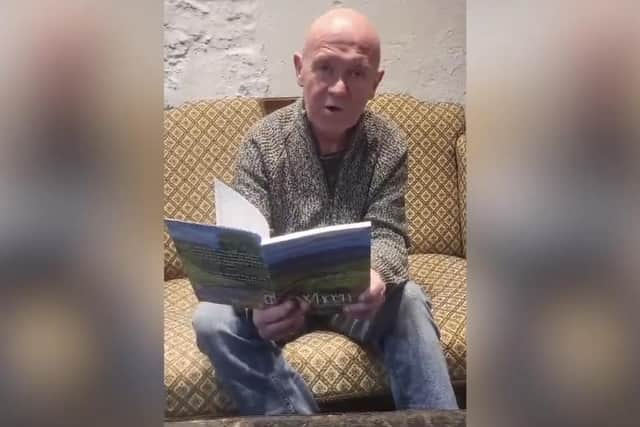The Scotsman Sessions #390: Stuart Paterson
There’s a pleasing double meaning in the title of the poem Stuart Paterson has chosen for his Scotsman Session. It’s called simply Aye, yet he uses the word to mean – in the Scots sense – both “yes” and “always”.
“I used the word ‘aye’ because I'm Scottish and I speak in Scots,” he says. “It was written five or six years ago, post-referendum, about the sense of being Scottish. A lot of what portrays Scottish people and the country itself is based on myth and nostalgia, and it’s stereotyped. It makes films and songs and all the rest of it, but it’s away in the past. It’s piss-taking.
Advertisement
Hide Ad“That's what the poem is about, the fact we can look at ourselves and say who we are and what we want. What we’re like as a country, as a nation, from the working class, all the way up and all the way down. No matter who you are or where you come from, you can be Scottish if you live here, and you have a say in your rights to the country you want to live in.”


Born and raised in Ayrshire, Paterson moved to Dumfries and Galloway in 1996, around the time he became Scottish Arts Council writer-in-residence for the region and his first poetry collection Saving Graces was published. Then he moved to Manchester to work in children's homes and social care for 14 years, returning to Nithsdale around 2012. His credits include the role of BBC Scotland poet-in-residence between 2017 and 2018.
“My mum and dad were from Ayrshire,” he says. “Scots speakers, working class, down-to-earth folk – but like any community, working class communities have their own culture and creativity. We heard poems and stories and songs about the house, then how does anybody get into anything they enjoy? I wrote about what meant something to me, then when I was 22 I studied English literature at university and was told that maybe I was good enough for publication.”
His dad was a big fan of Burns, and his mum also loved poetry. “Unfortunately she died a few weeks ago,” he says. “She was 93, she had a great innings and was definitely a big inspiration to me. I suppose you'd say a muse, very much a help to me right up until the day she went.”
Aye comes from Paterson’s new collection Wheen: Collected Scots Poems, which is published by the Ulster-Scots Community Network in Belfast. “It’s a collection of about 120 poems from the past 30 years, in 11 sections,” he says. “From past books, magazines, newspapers, the telly and radio, and also some very recent poems – about things like the continuing consequences of COVID, and Doddie Weir, the rugby player, a fantastic man who died far too young from a terrible disease.
“I also say things about Scotland, like in this poem. It’s a great country, and we’re a great people when we want to be. The thing about poetry is, aye, it’s all very well writing about the past and romanticism and stereotypical poetic analogies, but we need to be writing about the here and the now as much as anything, about who and what is and will be important to us.”
Stuart Paterson’s new poetry collection Wheen is out now, published by the Ulster Scots Community Network, see www.twitter.com/StuartPoet and www.ulster-scots.com